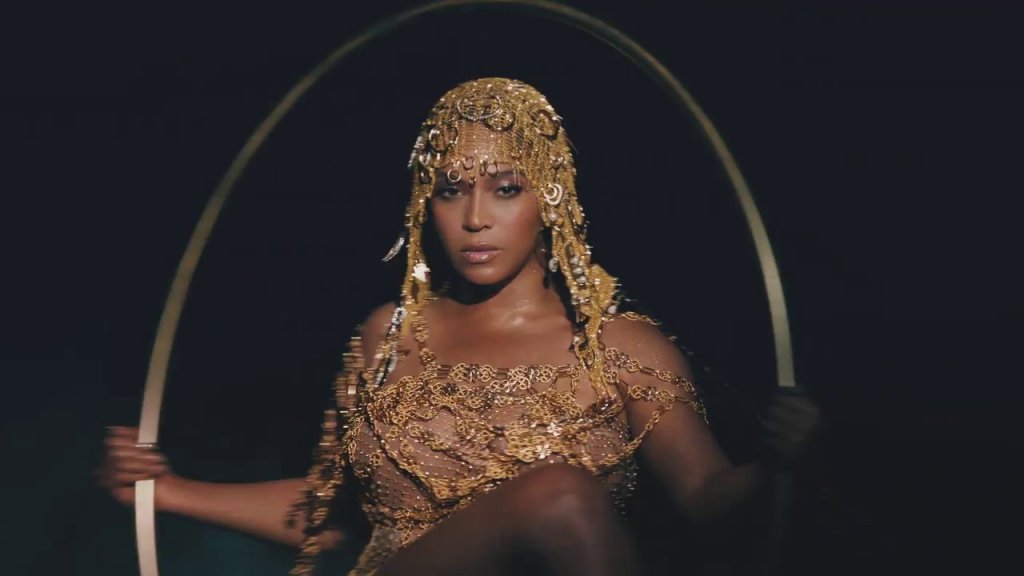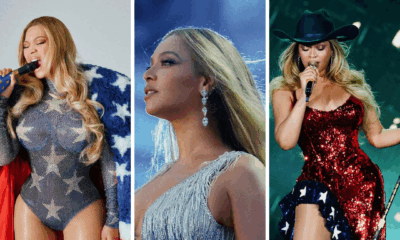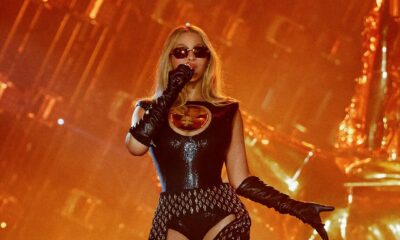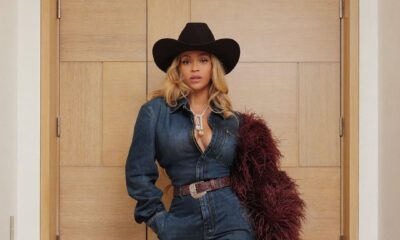Scoop
What Africans are Saying about Beyoncè’s forthcoming “Black is King”

Beyoncè recently announced the visual album “Black is King” with the release of a trailer. The album, which was inspired by last year’s “The Lion King“, was made to honour the voyages of black families throughout time according to a press statement released by Disney and Beyoncè’s company, Parkwood Entertainment.
The visual album, which Beyoncè described as “a labor of love,” is a tribute to Africa much like her last album “The Lion King: The Gift” which featured songs like “Spirit” and “Find Your Way Back” which also served as tributes to Africa.
However, since the trailer dropped, people have shared varying opinions of how Africa was portrayed in the visual album.
If you’re yet to see the trailer, watch it here:
The opinions on social media are divided into two main categories: those who think Beyoncè is portraying in Africa in an unrealistic fashion, and those who are of the opinion that Beyoncè is celebrating Africa the only way that she can.
The first group of people believe that it is problematic for African Americans to continue exoticising Africa in a way that has now been dubbed “Wakandanization”. They believe that Beyoncè and other African Americans would do well to see Africa as a place with regular people living regular lives and portray it as just that, rather than portraying it like some Afro-futurist fantasy.
See some tweets on this below:
Black americans have created for themselves an “africa” that is this wierd homogeneous exotic fantasy. It is infact a seperate mythical country with no resemblance to any real country in the real Africa. https://t.co/orMjwAd3gZ
— Hypernova&Stardust (@k_omowamiwa) June 28, 2020
Someone tweeted something about how she’s sick of the “wakandanization” of Africa and it’s SO TRUE. Give us a fucking break, yes it’s all nice having positive representation but this is closer to a fantasy than it is to reality ??
— Big Poppa (@LonelyScribe) June 28, 2020
Wakanda(n): a half baked example of an identifiably African place made to cater to a broad (but mostly western) audience.
Disambiguation: not a symbol of hope for Black people.
Disambiguation: not a good example of what an advanced African civilization could look like.
— Beautah (@mbaotao) June 29, 2020
“Would a Zamunda without its prosperity or a Wakanda without the technological advancements of vibranium be of much interest to African-American audiences?” https://t.co/kY28YLmJuf
— James Òmò-Ojo (@jamosa21) June 29, 2020
the way africa is portrayed in hollywood is very unrealistic. this “wakanda” aesthetic needs to go https://t.co/As7r3KTyoz
— ???merveille #blm (@jojohemss) June 29, 2020
Why does Beyoncé need to create a mythical and very wakanda like idea of Africa? Please stop selling the idea of that Africa is some lost continent and just accept that it’s actually a place with a history and diversity many are too lazy to bother learning.
— Nimco Ali (OB-fanny-E) ? (@NimkoAli) June 29, 2020
Afrofuturism has its merits. My issue is when its all about the “Wakandanization” of Africa.The same way Nigerians abroad have the luxury of crafting a“Gidi”bubble that is about suya,owanbe,small chops&fine native.We shouldn’t only be represented in extremes of poverty or royalty
— Hypernova&Stardust (@k_omowamiwa) June 29, 2020
The second group, on the other hand, believe that Beyoncè, as an African-American, who doesn’t know her heritage, is only celebrating and honouring that heritage in the way that she can. They believe that it isn’t right for Africans to dictate how African-Americans reimagine their heritage.
See some tweets on this below;
People hating BEYONCÉ for the trailer but Your own Africa today is a white man's fantasy. You've taken their cultures, religion, language and habits but that doesn't bother you, you're more concerned with talking down on people who are trying to reconnect with their roots
— gypsyking (@ideasmann_) June 29, 2020
Straighten our hair and bleach our skin. It’s to kill black pride. So if AA want to reclaim their own pride by associating with precolonial African cultures and traditions as from the time they were stolen from the land, I don’t see the big problem. Like I said before we also
— aos sí (@ThatRoGirl) June 29, 2020
As long as present day Africa is considered just collateral damage. It's all good. Power to Ọ̀ṣun
— Brother Karamazov (@SwollenPhallus) June 29, 2020
When you are privileged, equality feels like oppression. I will not be dictating how descendants of Africans should reimagine their ancestry, it’s part of her own healing process and I’m here for whatever comes from connecting with it. Especially if it inspires power or pride.
— ✨Doreen✨ (@DoreenGLM) June 29, 2020
While all these points are valid and have their merit, it is important to note that this visual album came to life with African creatives at the helm of production.
Reminder that Black Is King is the work of actual African artists. Your running to drag Beyonce for a one minute trailer has you on the internet calling the work of actual African artists "wakandafiction" and a black capitalist exploitation. https://t.co/okv2lG5bw7
— Sisa (@Titanbaddie) June 30, 2020
Honored to be part of an elite group of creatives across the world who worked on the @Beyonce "Black is King" as an Assistant Director for @JM_FilmsTV
Grateful for the opportunity to work with one of the most powerful creative forces on the face of this earth. #Parkwood #JM pic.twitter.com/xNC6Q7Mmvu
— LOGOR' (@_Logor) June 30, 2020
Nigerian creatives Ibra Ake, Daniel Obasi, KC Obiajulu, Logor and Dafe Oboro worked on the Nigerian part of the film, while Ghanaian creatives like Joshua Kissi worked on the Ghanaian part of the film.
So what do you think? What side of the camp are you on? Do you think there is indeed a “Wakandanization” of Africa, exoticising its people and culture, or do you think African Americans are free to reimagine Africa however they please to celebrate their heritage?






















